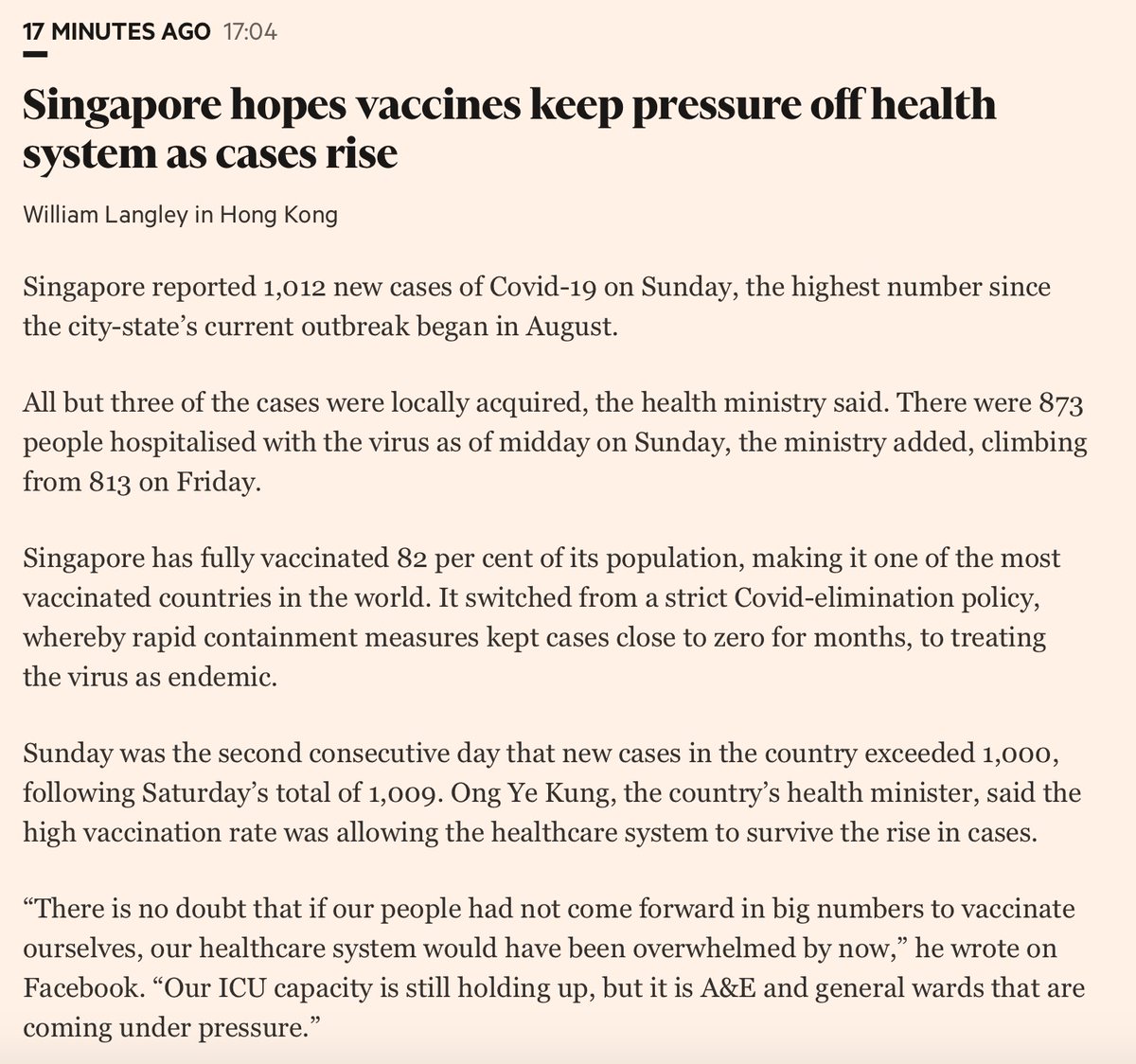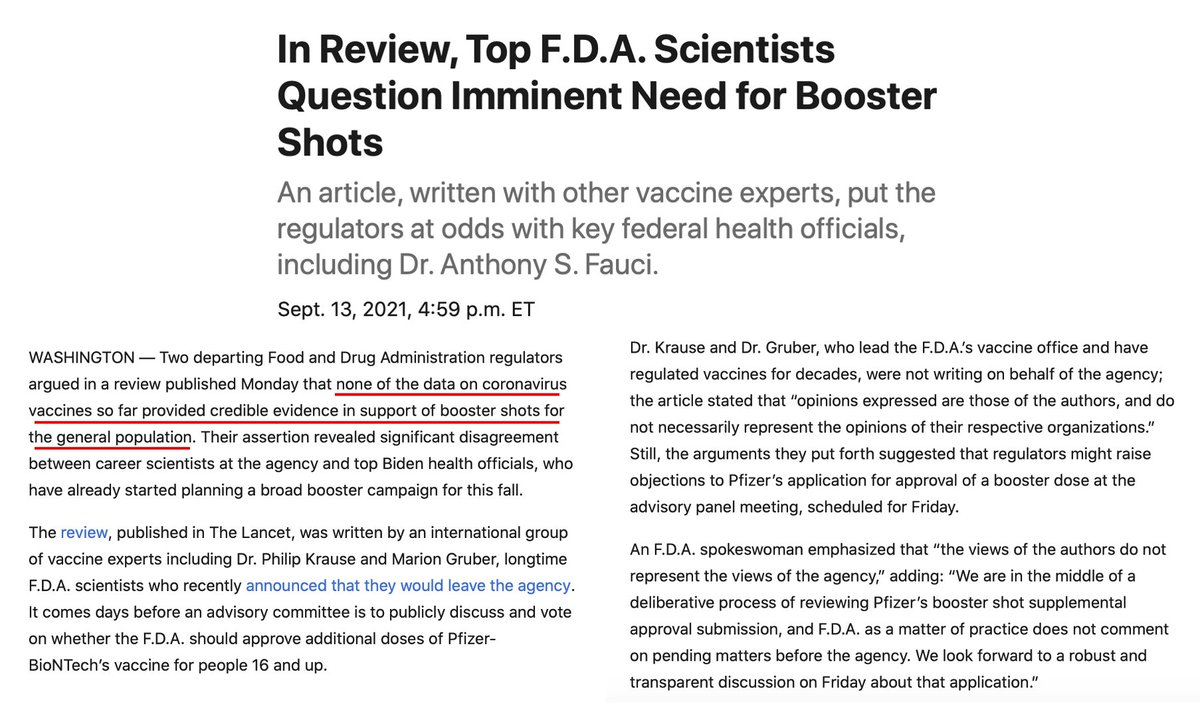
New large dataset of US Medicare (age 65+) population subgroup: 2.7 million Pfizer; 2.9 million Moderna vaccinated, w/ ~30,000 breakthrough hospitalizations, via claims 🧵main findings
@Humetrix humetrix.com/powerpoint-vac…
@Humetrix humetrix.com/powerpoint-vac…
1. Definite waning of protection vs hospitalization for those 5-6 months out from vaccination (odd ratio 2.5X at 6 months) 

2. No significant difference of waning for Pfizer vs Moderna for protection from breakthrough infections 

3. Breakthrough hospitalizations most in oldest age groups (cumulative 2.6%, of those with infection 20% required hospitalization, 34% ICU) 

4. Crude vaccine effectiveness vs hospitalization = 62%
This may be an underestimate due to this Medicare subgroup with high comorbidity and imputation for unvaccinated via CDC data sources
This may be an underestimate due to this Medicare subgroup with high comorbidity and imputation for unvaccinated via CDC data sources
5. The variables associated with breakthrough hospitalizations
Most notable: Prior covid + vaccine marked protection
Most notable: Prior covid + vaccine marked protection

As far as I know, this is the largest dataset of vaccinated Americans for breakthrough hospitalizations, w/ data several months out from getting vaccinated, multiple weeks into the 4th Delta wave (with the caveats of an insurance claims resource)
I could have started the thread with BREAKING but I've never done that; these data have not been previously made public
• • •
Missing some Tweet in this thread? You can try to
force a refresh


















